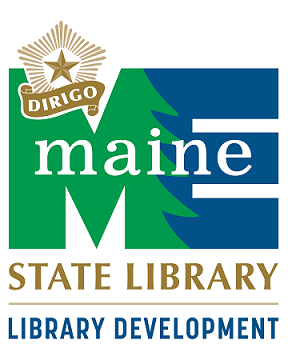Bureau/Division/Agency
Library Development; Library
Document Type
Text
Exact Creation Date
6-28-2022
Language
English
Recommended Citation
McKenney, Janet, "Maine's Five -Year LSTA Plan - 2023 - 2027, Library Services and Technology Act (LSTA) Libraries - 20 U.S.C. 9141" (2022). Library Development Documents. 38.
https://digitalmaine.com/ld_docs/38
Location
Kennebec County; Augusta
File Size
788 KB
Files over 3MB may be slow to open. For best results, right-click and select "Save As"
Rights Statement
No Copyright - United States. URI: http://rightsstatements.org/vocab/NoC-US/1.0/
The organization that has made the Item available believes that the Item is in the Public Domain under the laws of the United States, but a determination was not made as to its copyright status under the copyright laws of other countries. The Item may not be in the Public Domain under the laws of other countries. Please refer to the organization that has made the Item available for more information.



Description
The Maine State Library's five year plan (2023-2027) submitted on June 28, 2022.
From the Institute of Museum and Library Services website (https://www.imls.gov/grants/grant-programs/grants-states): The Grants to States program is the largest source of federal funding support for library services in the U.S.
What is the Grants to States program?
Using a population based formula, more than $160 million is distributed among the State Library Administrative Agencies (SLAAs) every year. SLAAs are official agencies charged by law with the extension and development of library services, and they are located in:
What do the funds support?
Each year, approximately 1,500 Grants to States projects support the purposes and priorities outlined in the Library Services and Technology Act (LSTA). SLAAs may use the funds to support statewide initiatives and services, and they may also distribute the funds through competitive subawards to, or cooperative agreements with, public, academic, research, school, or special libraries or consortia (for-profit and federal libraries are not eligible).States and subrecipients have partnered with community organizations to provide a variety of services and programs, including access to electronic databases, computer instruction, homework centers, summer reading programs, digitization of special collections, access to e-books and adaptive technology, bookmobile service, and development of outreach programs to the underserved.
How are funds allocated?
The Grants to States program allocates a base amount to each of the SLAAs plus a supplemental amount based on population.
How is the program evaluated?
The Library Services and Technology Act requires each SLAA to submit a plan that details library services goals for a five-year period. SLAAs must also conduct a five-year evaluation of library services based on that plan. These plans and evaluations are the foundation for improving practice and informing policy.